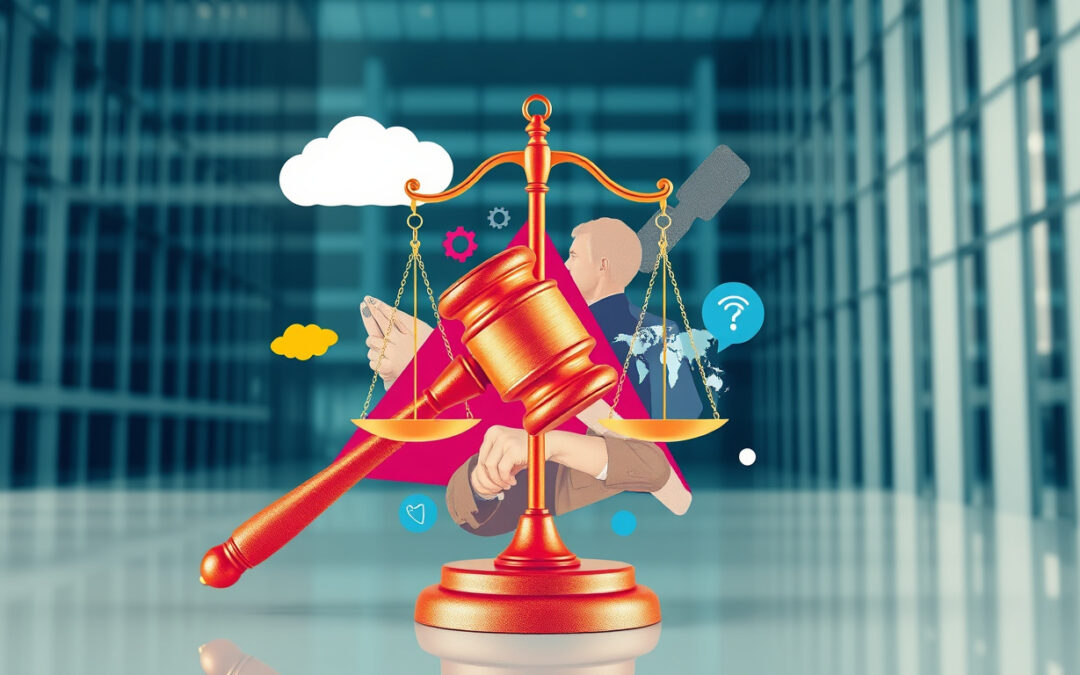
BLOG
In today’s complex legal landscape, businesses face significant risks related to penalties and employer liability issues. Understanding these challenges is crucial for safeguarding a company’s reputation and finances. This article will explore the various aspects of employer liability, the legal frameworks that govern penalties, and the potential repercussions that employers may encounter. By examining different types of penalties and strategies for mitigation, as well as reviewing pertinent case studies, we aim to provide a comprehensive overview for business owners and HR professionals eager to navigate these critical terrain successfully.
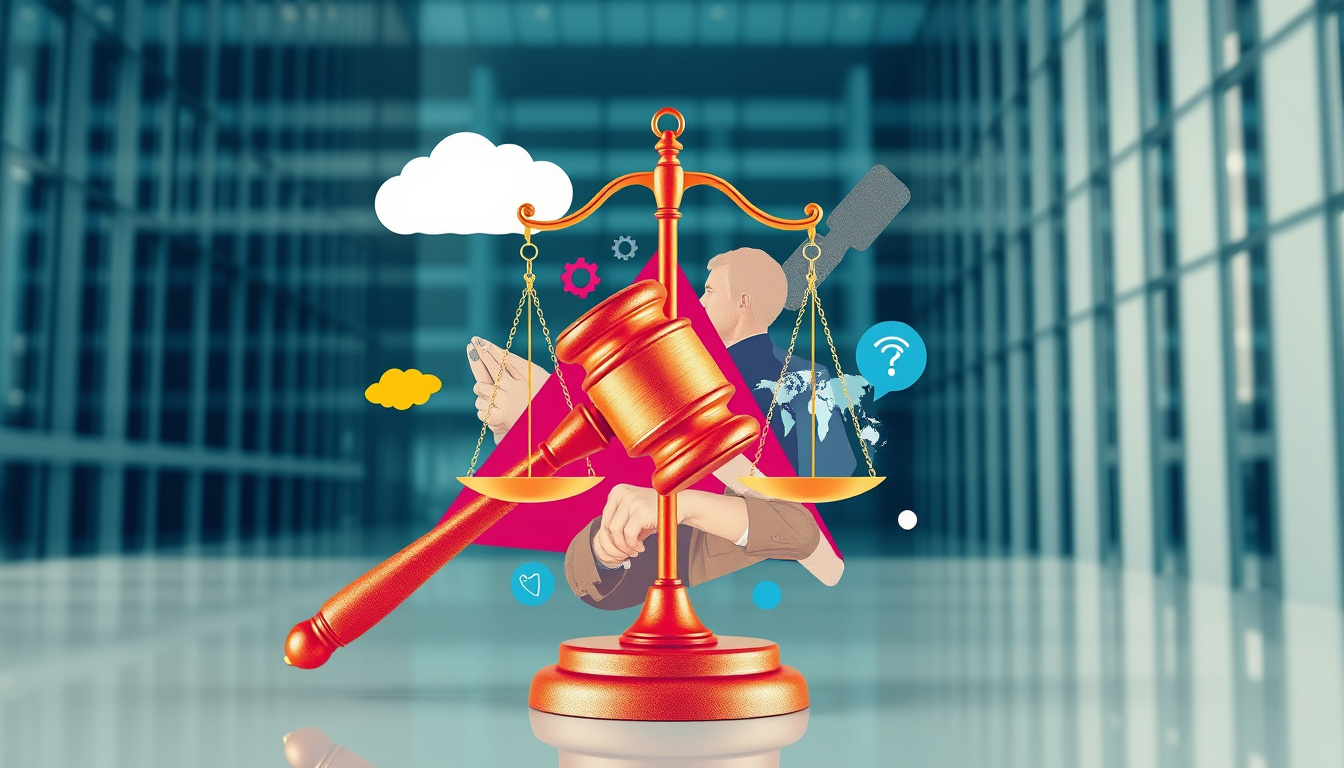
Key Takeaways
- Understanding employer liability is crucial for businesses to navigate legal risks.
- Employers can face various types of penalties, including fines, lawsuits, and sanctions.
- The impact of penalties can significantly affect a company’s reputation and financial standing.
- Implementing strategies to mitigate liability can help reduce potential penalties for employers.
- Case studies reveal real-world implications of liability issues and serve as learning tools for prevention.
Understanding Employer Liability
Understanding employer liability is crucial for both business owners and employees to ensure a safe and compliant workplace. In today’s highly regulated environment, penalties and employer liability issues can pose significant risks to organizations. Employers are responsible for creating a safe working environment, and failure to do so may result in severe penalties when regulations are violated. This can include financial repercussions as well as legal actions taken by employees who suffer injuries or damages due to employer negligence. By understanding the nuances of employer liability, companies can implement better safety practices and policies to mitigate risks, while employees gain insight into their rights and protections within the workplace.
Legal Framework Surrounding Penalties
Understanding the legal framework surrounding penalties and employer liability issues is crucial for both employers and employees. Penalties can arise from various violations, including labor law infractions, workplace safety regulations, and discrimination claims. Employers must navigate a complex landscape of federal, state, and local regulations, which dictate the penalties they may face for non-compliance. Additionally, employer liability issues often hinge on the circumstances surrounding an employee’s claim or the nature of the violation. For instance, if an employee is harmed due to a failure to adhere to safety protocols, the employer could not only be penalized with fines but could also face lawsuits for damages. Therefore, it is essential for businesses to implement effective compliance strategies and maintain a thorough understanding of their legal obligations to mitigate potential penalties and liability issues.
‘The law is reason, free from passion.’ – Aristotle
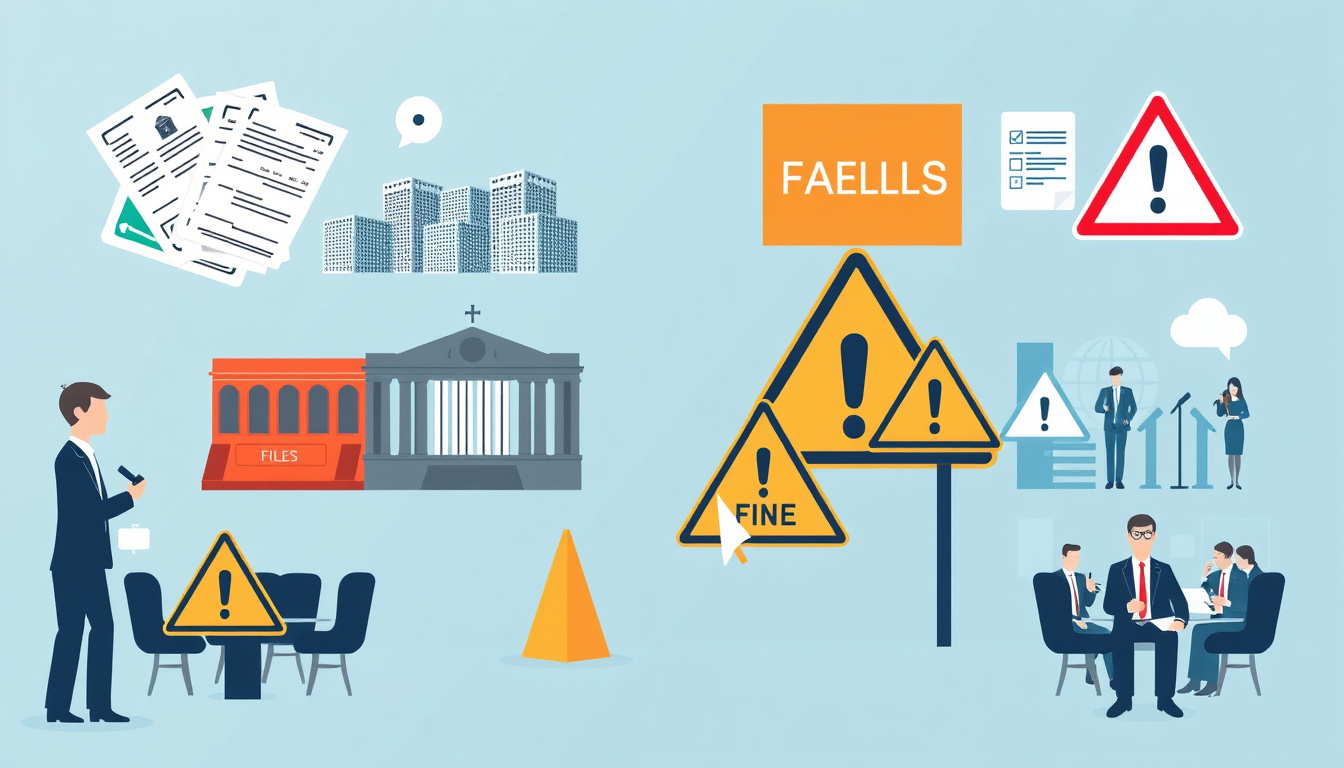
Types of Penalties Employers May Face
In today’s complex regulatory environment, understanding the various types of penalties employers may face is crucial for safeguarding their businesses against significant risks. Employers can be confronted with penalties not just for ongoing violations but also for unintentional infractions that may arise from misunderstanding labor laws or failing to comply with safety regulations. Common penalties include monetary fines, which can vary greatly depending on the severity of the violation and the jurisdiction involved. In addition to financial consequences, employers may also find themselves facing reputational damage, increased insurance premiums, or even criminal charges in extreme cases, especially when employee safety is compromised. Moreover, employer liability issues can lead to civil lawsuits brought by employees or regulatory authorities, posing a further threat to business stability. It is essential for employers to stay informed about relevant laws and regulations to mitigate these risks effectively.
Impact of Penalties on Employers
Understanding the impact of penalties on employers is crucial in navigating the complex landscape of employer liability issues. When businesses fail to comply with legislation—be it labor laws, safety regulations, or tax obligations—they face significant penalties. These penalties can vary widely, from fines that impact financial stability to repercussions that alter business practices. Moreover, the ramifications extend beyond just immediate monetary costs; persistent violations can lead to reputational damage and increased scrutiny from regulatory agencies. Employers must prioritize compliance and establish robust training and monitoring systems to mitigate the risk of penalties and manage potential employer liability issues effectively. By doing so, they not only protect their business interests but also foster a positive workplace culture that complies with legal standards.

Strategies for Mitigating Employer Liability
When it comes to managing the complexities of the workplace, understanding penalties and employer liability issues is crucial for any business. To effectively mitigate these risks, employers can adopt several strategic approaches. Firstly, regular training sessions on compliance and workplace policies for employees can ensure everyone is informed about their rights and obligations, potentially reducing the risk of violations that lead to penalties. Secondly, conducting comprehensive audits of workplace practices can help identify and rectify any compliance gaps before they result in legal complications. Additionally, maintaining clear and open communication channels within the organization encourages employees to voice concerns or report issues, fostering a proactive approach to employer liability issues. Finally, consulting with legal experts to stay updated on changing laws and regulations related to employment can further protect businesses from unexpected liabilities. By implementing these strategies, companies can significantly reduce the risk of incurring penalties and handle potential employer liability issues more effectively.
Case Studies on Employer Liability Issues
Understanding penalties and employer liability issues is crucial for organizations looking to protect themselves and mitigate potential risks. Several case studies illuminate how companies have navigated these complexities. For instance, in a recent case, a mid-sized firm faced significant penalties after failing to comply with workplace safety regulations, resulting in an employee injury. The resulting litigation not only highlighted the employer’s liability issues but also emphasized the importance of workplace safety training and regular inspections. In another scenario, a large corporation was penalized for wrongful termination, where they did not adhere to the proper procedures for documenting employee performance. This case underscored how meticulous record-keeping can shield an employer from liability. By analyzing these case studies, employers can gain insights into avoiding common pitfalls and establishing robust compliance strategies, ultimately minimizing the risks associated with penalties and employer liability issues.

BLOG
In today’s fast-paced world, understanding the importance of responsible drinking is more crucial than ever. Whether you’re a hospitality professional, a parent, or simply someone who wants to enjoy alcohol safely, alcohol training is an invaluable resource. This comprehensive course equips you with the knowledge and skills needed to make informed decisions about alcohol consumption, recognize signs of intoxication, and promote safety in social settings. In this article, we will explore why alcohol training is essential, the key components of the course, and how it can benefit individuals and organizations alike.
Why Is Alcohol Training Important?
Alcohol training serves multiple vital purposes. Primarily, it aims to reduce alcohol-related incidents, promote safety, and foster responsible drinking habits. According to the World Health Organization, unsafe or excessive alcohol consumption is a leading risk factor for health problems and accidents worldwide (source).
For professionals working in hospitality, retail, or event management, alcohol training is often a legal or regulatory requirement. For individuals, especially parents or caregivers, it’s a tool to understand alcohol’s effects and manage its consumption better. Overall, alcohol training enhances awareness, boosts confidence in handling situations involving alcohol, and helps prevent harm.
What Does Alcohol Training Cover?
An effective alcohol training course typically includes the following components:
1. Understanding Alcohol and Its Effects
Participants learn about the chemical properties of alcohol, how it affects the body—such as impairing judgment, slowing reaction times, and affecting coordination—and the signs of intoxication. Understanding these effects is critical for safe consumption and intervention when necessary.
2. Legal Responsibilities and Regulations
Especially relevant for those working behind the bar or managing events, this section covers legal aspects of serving alcohol, the legal blood alcohol concentration (BAC) limits, and responsibilities related to serving minors or visibly intoxicated individuals.
3. Recognizing Signs of Intoxication and Problematic Drinking
Key indicators include slurred speech, loss of inhibition, and impaired motor skills. Recognizing these signs allows staff to intervene appropriately, such as refusing service or offering assistance.
4. Techniques for Responsible Service
Training involves practical guidance on how to serve alcohol responsibly, including pacing drinks, monitoring customers, and refusing service when necessary to prevent over-intoxication.
5. Intervention Strategies and Emergency Response
Participants learn how to handle situations where someone’s safety is at risk, whether through de-escalation techniques or emergency procedures like calling for medical help.
6. The Impact of Alcohol on Different Populations
This includes understanding how alcohol affects various groups differently, such as pregnant women, teenagers, and individuals with health conditions.
The Benefits of Alcohol Training
Investing in alcohol training offers numerous advantages for both individuals and organizations:
- Enhanced Safety: Reduced risk of accidents, injuries, and alcohol-related violence.
- Legal Compliance: Meeting legal requirements for responsible serving and reducing liability.
- Customer Satisfaction: Staff equipped with knowledge can create a safer and more enjoyable environment.
- Personal Responsibility: Encourages healthier drinking habits and awareness of personal limits.
- Community Impact: Promotes a culture of responsibility within the wider community, decreasing alcohol abuse and its societal costs.
Who Should Consider Alcohol Training?
While often mandated for certain professions, alcohol training benefits a variety of individuals including:
- Hospitality staff and bartenders
- Event organizers and security personnel
- Parents and guardians
- Healthcare professionals
- Educators and youth counselors
- Anyone interested in responsible drinking
How to Choose the Right Alcohol Training Course?
When selecting an alcohol training course, consider the following:
- Accreditation: Ensure the course is recognized by reputable organizations or regulatory bodies.
- Content Quality: Look for comprehensive modules covering legal, safety, and practical aspects.
- Delivery Method: Choose between online, in-person, or blended formats based on your learning style.
- Certification: Confirm that the course provides certification upon completion, which can be useful for employment or compliance purposes.
- Reviews and Reputation: Research feedback from previous participants to gauge effectiveness.
How Alcohol Training Impacts Society
Overall, alcohol training contributes significantly to public health and safety. By educating individuals and professionals about responsible alcohol consumption, these courses help decrease instances of drunk driving, alcohol-related violence, and health issues. Some notable organizations and governments advocate for widespread alcohol training to foster safer communities.
Implementing Alcohol Training in Your Organization
For businesses in the hospitality or event management sectors, implementing alcohol training as part of employee onboarding and ongoing professional development is crucial. Here are steps to effectively integrate alcohol training:
- Assess your needs: Identify the roles that require responsible service knowledge.
- Choose accredited courses: Select programs aligned with local legislation.
- Schedule regular training: Keep staff updated on best practices.
- Encourage ongoing education: Promote awareness campaigns and refresher courses.
- Monitor and enforce policies: Create clear protocols based on training outcomes.
Conclusion
Alcohol training is much more than a regulatory requirement—it’s a vital step toward fostering responsible drinking habits, enhancing safety, and reducing alcohol-related harms in our communities. Whether you’re a professional in the hospitality industry or an individual committed to drinking responsibly, investing in quality alcohol training provides lifelong benefits. Remember, informed choices and responsible service are the cornerstones of a safer, healthier society.
Frequently Asked Questions (FAQs)
1. What is included in standard alcohol training courses?
Standard alcohol training typically covers understanding alcohol’s effects, legal responsibilities, recognizing intoxication, responsible service techniques, and emergency response procedures.
2. Why is alcohol training important for hospitality staff?
It ensures staff can serve alcohol responsibly, recognize signs of over-intoxication, prevent illegal service, and handle challenging situations safely, thereby reducing liability and enhancing customer safety.
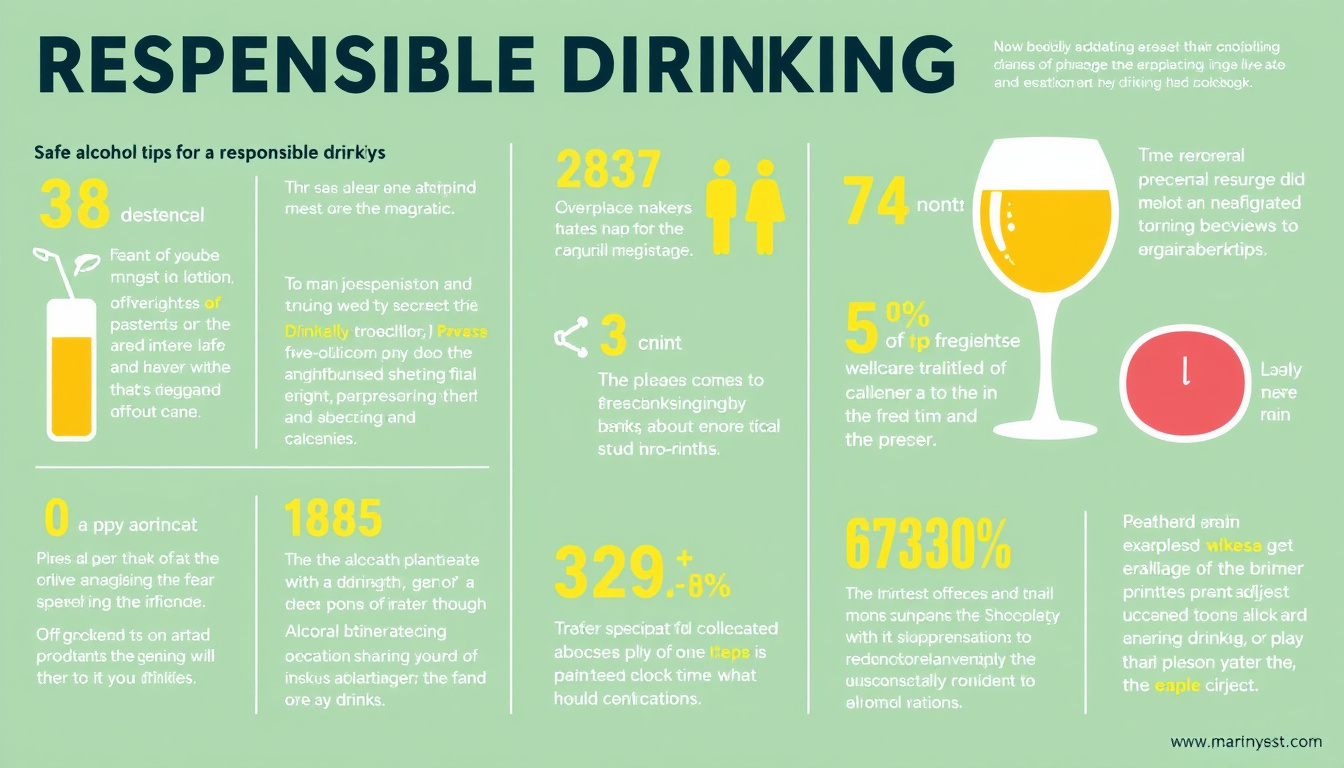
3. How can I find a reputable alcohol training course?
Look for courses accredited by recognized organizations such as the Hospitality and Licensed Trade Association (HASH), or government agencies. Reading reviews and assessing course content for comprehensiveness can also help.
For more information about responsible alcohol service and training standards, visit the World Health Organization’s guidelines on alcohol.
Taking the step towards alcohol training is a proactive move towards a responsible and safer approach to alcohol consumption—protect yourself, your clients, and your community today.

BLOG
If you’re a business owner in Louisiana considering serving alcohol, understanding the legal landscape is vital. Specifically, the legal risks of serving alcohol without a bar card in Louisiana can have significant financial and reputational implications for your establishment. In this article, we will explore the essential aspects of alcohol service laws, delve into the importance of obtaining a bar card, and highlight best practices to mitigate risks. Whether you’re a seasoned veteran in the hospitality industry or a newcomer, this guide will equip you with the knowledge needed to navigate the complexities surrounding alcohol service in the Pelican State.

Key Takeaways
- Serving alcohol in Louisiana without a bar card can lead to severe legal consequences.
- Many people misunderstand the specific requirements for alcohol service licensing in Louisiana.
- Violating alcohol service regulations may result in hefty fines and potential imprisonment.
- Establishing best practices for compliance can help mitigate risks associated with alcohol service.
- Utilizing available resources can enhance understanding of Louisiana’s alcohol service laws and regulations.
Understanding the Bar Card Requirement in Louisiana
In Louisiana, understanding the bar card requirement is essential for anyone involved in the service of alcoholic beverages. A bar card, often referred to as a serving license, is necessary for individuals who wish to serve alcohol in establishments like bars, restaurants, and clubs. This requirement not only helps maintain standards within the hospitality industry but also protects both the servers and the establishment from the legal risks of serving alcohol without a bar card. Failing to obtain this license can result in significant legal consequences, including fines and potential closure of the business. Moreover, without proper certification, servers may lack crucial knowledge of responsible alcohol service, increasing the risk of incidents such as over-serving guests or serving minors. Being informed about the legal requirements surrounding the bar card in Louisiana is vital for proprietors and their staff to ensure compliance and safety in their establishments.
Legal Implications of Serving Alcohol Without a Bar Card
In Louisiana, understanding the legal risks of serving alcohol without a bar card is crucial for anyone involved in the hospitality industry. A bar card, also known as an alcohol server permit, ensures that individuals are trained in responsible alcohol service and are familiar with state regulations regarding the sale and consumption of alcohol. Serving alcohol without this permit can lead to serious legal consequences, including hefty fines and potential criminal charges. Moreover, establishments can face significant liabilities, particularly if alcohol is served to minors or if intoxicated patrons cause harm. By adhering to state laws and obtaining a bar card, servers and business owners not only protect themselves legally but also contribute to a safer environment for their customers. This proactive approach is essential in maintaining compliance with Louisiana’s strict alcohol regulations, ultimately safeguarding your business reputation and ensuring smooth operations.
‘The law is not a mere act of will, but an expression of the community’s normative framework for regulating behavior.’ – John Rawls
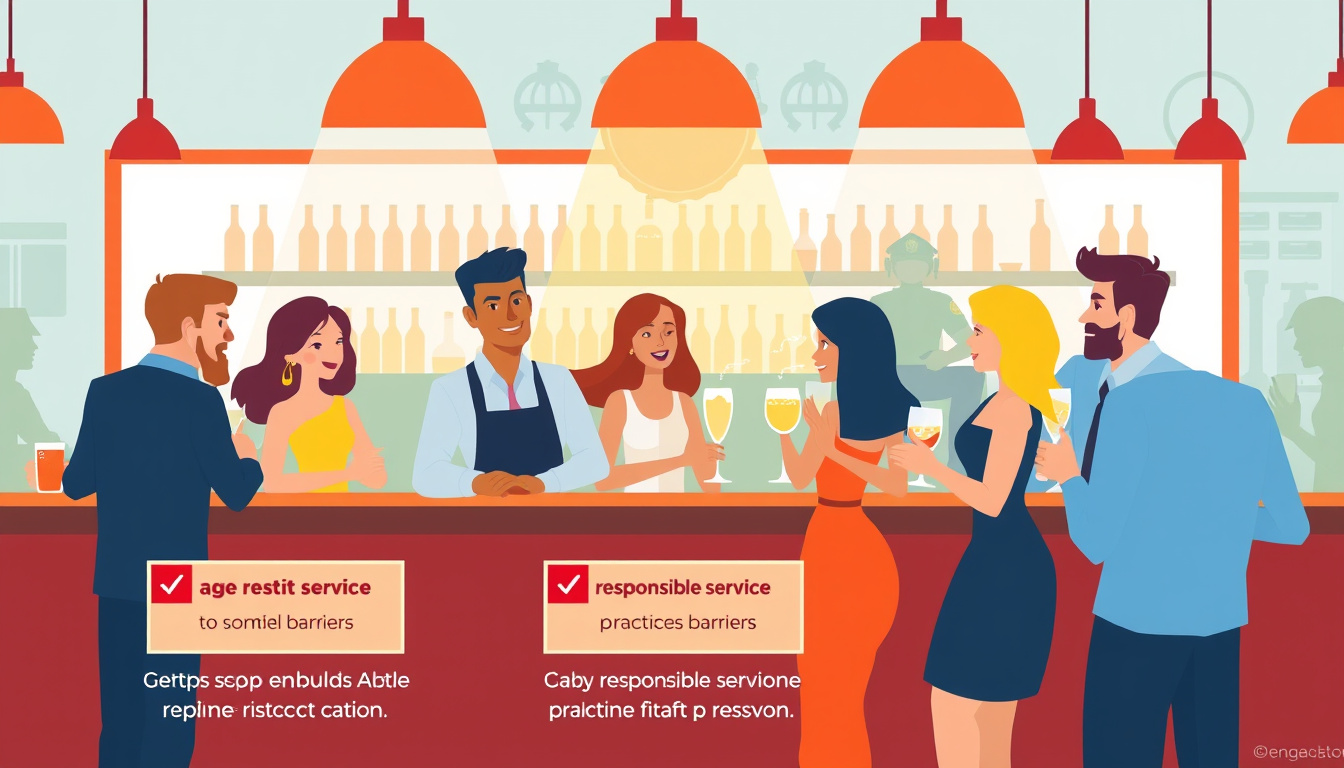
Common Misconceptions About Alcohol Service Laws
When it comes to serving alcohol in Louisiana, there are several common misconceptions that can lead to serious consequences. One of the most significant misunderstandings is the perception that serving alcohol without a bar card is permissible under certain circumstances. However, the legal risks of serving alcohol without a bar card in Louisiana can be substantial. Many individuals believe that informal gatherings or private events are exempt from licensing regulations, but this is far from the truth. In reality, any form of alcohol service typically requires compliance with state laws, including the necessity of obtaining proper licensing, such as a bar card. Failure to adhere to these regulations not only exposes servers and establishments to hefty fines and legal liability, but it can also jeopardize the safety of patrons and the community at large. Understanding and navigating the intricacies of alcohol service laws is essential for anyone looking to serve alcohol legally in Louisiana, making awareness of these misconceptions vital.
Penalties for Violating Alcohol Serving Regulations
In Louisiana, the legal risks of serving alcohol without a bar card can lead to significant penalties for both the establishment and individual servers. The state mandates that anyone engaging in the sale or service of alcoholic beverages must possess a valid alcoholic beverage permit, commonly referred to as a bar card, issued by the Louisiana Office of Alcohol and Tobacco Control (ATC). Failing to comply with this regulation can result in hefty fines, suspension of the business license, or even criminal charges for responsible parties. Moreover, establishments risk civil liability, particularly if they serve minors or intoxicated patrons, which could result in lawsuits or increased insurance rates. Therefore, it is crucial for businesses and employees in the beverage service industry to understand and adhere to the legal requirements surrounding alcohol service in Louisiana to mitigate these risks and ensure the safe and responsible serving of alcohol.

Best Practices for Compliance and Risk Mitigation
Serving alcohol in Louisiana can be a lucrative business, but it also comes with significant legal responsibilities. One of the critical concerns for establishments is the legal risks of serving alcohol without a bar card. To mitigate these risks, it’s vital for business owners to align with best practices for compliance and risk management. First and foremost, ensure all staff members involved in alcohol service possess valid bar cards, which indicate they’ve undergone appropriate training regarding the responsible serving of alcohol. This training educates employees on identifying intoxicated patrons, minimizing liability, and understanding state laws that govern alcohol service. Additionally, it’s prudent to establish clear policies and procedures for checking IDs, refusing service, and handling situations involving underage drinking or intoxication. Document these procedures and conduct regular training refreshers to reinforce them among staff. Furthermore, maintaining adequate insurance coverage that includes liquor liability is essential for protecting your business in case of incidents. By focusing on these best practices, businesses can greatly reduce the legal risks of serving alcohol without a bar card in Louisiana while fostering a safe and compliant environment.
Resources for Learning About Alcohol Service Laws
Navigating the laws surrounding alcohol service can be a complex endeavor, especially in a state like Louisiana, known for its vibrant nightlife and diverse culinary scene. Understanding the legal risks of serving alcohol without a bar card in Louisiana is paramount for anyone involved in the hospitality industry. Serving alcohol without the required training can lead to significant consequences, including hefty fines, potential lawsuits, and even the loss of your business license. Fortunately, there are numerous resources available for learning about alcohol service laws in Louisiana. The Louisiana Office of Alcohol and Tobacco Control (ATC) provides comprehensive guidelines and training requirements online, which are invaluable for bartenders and business owners. Additionally, local community colleges and vocational schools often offer courses that not only cover the legal aspects but also equip you with essential bartending skills. Engaging with professional associations and attending workshops can also deepen your understanding of best practices when it comes to legal compliance in alcohol service. By taking advantage of these resources, you can ensure that you are not only serving responsibly but also protecting yourself from the legal ramifications associated with improper alcohol service.

BLOG
When planning a private event, hiring the right staff is crucial to ensure that everything runs smoothly. However, there are several legal considerations for private event staff that event hosts must take into account to protect themselves and their employees. From understanding employment status to liability issues, exploring these aspects is essential for both experienced planners and those new to the event industry. This article delves into the key legal aspects you need to remember, including the distinction between independent contractors and employees, the importance of liability and insurance, the need for contractual agreements, and compliance with health and safety regulations. Let’s explore these legal considerations for private event staff to help you navigate the complexities of hiring and managing your event workforce.

Key Takeaways
- Understanding whether event staff are classified as independent contractors or employees is crucial for legal compliance.
- Private event organizers should ensure that liability and insurance requirements are met to protect themselves and their staff.
- Written contracts are essential to outline expectations and protect the rights of both event staff and employers.
- Event staff must adhere to health and safety regulations to ensure a safe working environment during events.
- Complying with local labor laws is necessary to safeguard employment rights and benefits for private event workers.
Understanding Employment Status: Independent Contractors vs. Employees
When it comes to hiring private event staff, understanding the legal considerations for private event staff is crucial, particularly in distinguishing between independent contractors and employees. The classification can significantly impact tax obligations, liability responsibilities, and benefits entitlements. Independent contractors typically operate under a self-employed status, allowing them greater flexibility, but also requiring them to manage their own taxes and insurance. In contrast, employees enjoy more protections under labor laws, including minimum wage guarantees and unemployment benefits. Event organizers must ensure compliance with local labor laws while making these distinctions, as misclassifying an employee as an independent contractor can lead to legal repercussions, including fines and back taxes. By being informed of these legal considerations, event planners can protect themselves and create a more compliant workforce, ensuring that the hired staff fits the intended employment classification.
Liability and Insurance Requirements for Private Event Staff
When it comes to hiring private event staff, understanding the legal considerations for private event staff is crucial for both employers and employees. Primarily, liability concerns can arise from various situations, including accidents, injuries, or property damage that may occur during an event. Hence, having proper liability insurance is not just a precaution but a necessity. Event organizers should ensure that staff members are covered under a comprehensive insurance policy, which protects against claims that may arise during the course of their duties. Additionally, considering workers’ compensation insurance is vital, as it covers medical expenses and lost wages for employees who get injured while working. By adequately addressing these legal considerations for private event staff, organizers can mitigate potential risks and create a safer, worry-free environment for both their guests and workers.
‘In law, nothing is certain except death and taxes.’ – Benjamin Franklin
, emergency procedures, and risk assessments. Additionally, training staff on these regulations is imperative for preparing them to handle unexpected situations responsibly. By prioritizing these legal considerations, organizers not only create a safer working environment for their staff but also enhance the overall experience for guests, ultimately leading to a successful event.</p><p><img src=)
Employment Rights and Benefits for Private Event Workers
When it comes to private event workers, understanding the employment rights and benefits available to them is crucial. Legal considerations for private event staff can vary widely depending on local laws and the nature of their employment arrangements. For example, many workers are classified as independent contractors, which affects their eligibility for benefits such as health insurance, unemployment compensation, and workers’ rights protections. It’s important for event planners and staff alike to be aware of these nuances to ensure compliance with labor laws. Moreover, establishing clear contracts that delineate responsibilities, pay rates, and additional benefits can help safeguard the rights of private event workers while fostering a positive work environment. As the gig economy continues to evolve, so too do the legal frameworks governing private event staffing, making it essential for both employers and employees to stay informed about their rights and obligations.
Best Practices for Complying with Local Labor Laws
When planning a private event, it’s crucial to understand the legal considerations for private event staff to ensure compliance with local labor laws. These laws can vary significantly depending on your location, making it essential to familiarize yourself with regulations regarding minimum wage, overtime pay, and employee classifications. One of the best practices is to always draft clear contracts for your staff members that outline their roles, compensation, and working hours. Additionally, be sure to verify that your hired staff are properly classified as employees or independent contractors, as this impacts tax obligations and liability. Keeping a detailed record of working hours and ensuring timely payment not only fosters a positive relationship with your staff but also helps you stay compliant with labor regulations. Moreover, consider incorporating training sessions focused on workplace safety and anti-discrimination policies to further anchor your legal compliance and create a respectful work environment. By following these best practices for legal considerations for private event staff, you can minimize risks and create a successful event experience.

BLOG
Dram shop laws are an important aspect of liquor liability that can have significant legal consequences for establishments serving alcohol. If you own a bar, restaurant, or any business involved in serving alcohol, understanding the legal implications of dram shop laws is essential to safeguard your business and adhere to legal responsibilities. In this article, we will explore what dram shop laws are, how they work, and what legal risks and obligations you face under such laws.
What Are Dram Shop Laws?
Dram shop laws are statutes that hold third parties—such as bars, restaurants, and liquor stores—liable for damages caused by serving alcohol to intoxicated individuals or minors. The term “dram shop” originates from the traditional practice of selling liquor in small glasses called “drams,” and these laws establish liabilities similar to those found in product liability or negligence cases.
In simple terms, a dram shop law allows victims who are harmed by an intoxicated individual to pursue legal action against the establishment that served the alcohol, provided certain conditions are met. These laws serve both as a deterrent against reckless service practices and as a means to ensure that those harmed by intoxicated individuals can seek compensation.
How Do Dram Shop Laws Work?
Dram shop laws vary by state, but generally, they operate on principles of negligence and liability. When an individual is injured due to someone else’s intoxication, the injured party can file a claim against:
- The individual who was served alcohol
- The alcohol-serving establishment that served the intoxicated individual
However, the primary focus of dram shop liability is on the service provider. The key factors that determine liability often include:
- Whether the establishment served alcohol to a minor or an obviously intoxicated person
- The circumstances under which the person was served
- The state’s specific statutes and legal standards
For example, in many jurisdictions, a bar can be held liable if it over-served a visibly intoxicated patron who then caused a car accident, injuring others.
Conditions for Liability
While the specifics differ by jurisdiction, common conditions for establishing dram shop liability include:
- The establishment served alcohol to an individual who was visibly intoxicated or a minor
- The individual was harmed or caused harm due to their intoxication
- There is a causal link between the establishment’s service and the injury
Legal Risks for Alcohol Service Establishments
Understanding the legal implications of dram shop laws is critical for any business involved in serving alcohol. The most prominent risks include:
1. Legal Liability for Alcohol-Related Harm
Establishments can be held financially responsible for damages caused by their patrons if their service contributed to the harm. This could include:
- Car accidents
- Assaults and violence
- Property damage
- Personal injuries
2. Increased Insurance Costs
Because of the potential liabilities, many businesses facing dram shop regulations carry higher liquor liability insurance premiums. Insurance providers assess the risk of lawsuits when setting rates, which can increase operational costs.
3. Civil and Criminal Penalties
Failure to adhere to dram shop laws can result in civil lawsuits, fines, or license revocations. Courts may impose penalties on establishments that serve minors or visibly intoxicated patrons.
4. Reputation Damage
Legal actions stemming from violations of dram shop laws can harm a business’s reputation, possibly leading to decreased patronage and revenue.
How to Minimize Legal Risks Under Dram Shop Laws
To protect your business from potential liabilities associated with dram shop laws, consider these best practices:
- Implement strict training programs for staff on responsible alcohol service
- Verify the age of all patrons to prevent serving minors
- Monitor patrons for signs of intoxication and refuse service when appropriate
- Maintain detailed records of alcohol sales and patron interactions
- Develop a clear policy for refusing service to intoxicated customers
- Regularly review legal compliance with local and state liquor laws
Adhering to these practices can significantly reduce the risk of liability and help ensure your establishment remains compliant with dram shop laws.
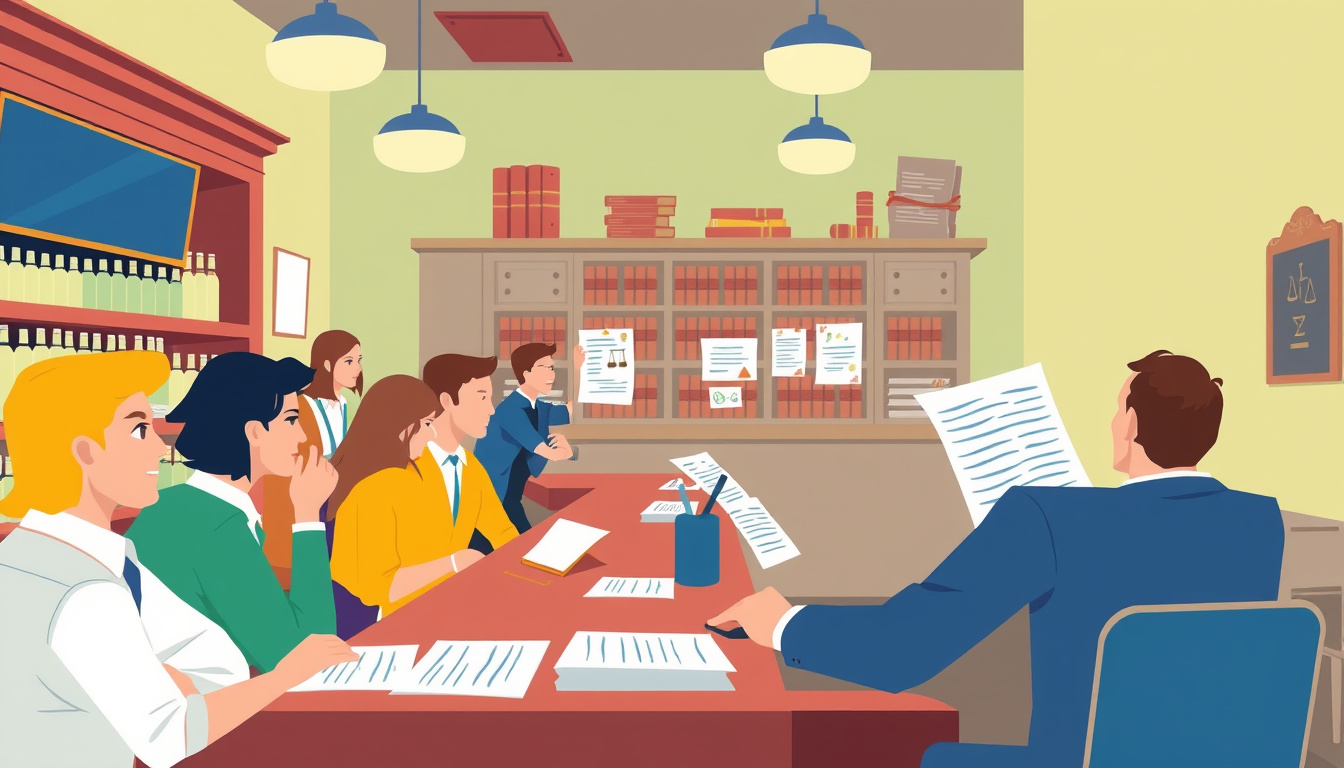
Key Components of Effective Alcohol Service Policies
Implementing comprehensive policies not only minimizes legal risk but also promotes responsible service standards. Here are essential components to include:
- Training and Certification: Ensure all staff complete responsible beverage service training
- ID Verification Procedures: Strictly check IDs for minors or suspicious documents
- Monitoring and Intervention: Train staff to recognize intoxication signs and intervene appropriately
- Incident Documentation: Record any situations involving over-service or refusal of service
- Emergency Procedures: Establish protocols for handling incidents involving intoxicated patrons
The Role of Local Laws and Regulations
Since dram shop laws differ significantly between states, it’s vital to understand your jurisdiction’s specific legal environment. Some states impose strict liability, meaning any service to minors or intoxicated persons can lead to liability, while others require proof of negligence.
Official sources like state liquor control boards or legal resources can provide detailed information tailored to your location. Consulting legal professionals familiar with liquor law ensures your policies align with local regulations.
Summary: The Critical Importance of Diligence and Compliance
Dram shop laws reinforce the responsibilities of alcohol-serving businesses to promote responsible service and prevent alcohol-related harm. The legal implications underscore the importance of diligent, responsible practices that comply with all relevant statutes. By implementing responsible service policies, training staff, and understanding your legal obligations, you can mitigate risks and foster a safer environment for your patrons and the community.

BLOG
When planning a private event in Louisiana, one of the crucial considerations is whether your staff, particularly servers, need a Louisiana ATC certification. With alcohol being a central feature of many celebrations, understanding the regulatory landscape is essential for ensuring compliance and responsible service. In this article, we will delve into the specifics of the Louisiana ATC (Alcohol and Tobacco Control) certification, discussing who needs to obtain it, the role servers play at these events, potential exemptions, and the steps to acquire certification. By the end, you’ll have a clearer understanding of whether a Louisiana ATC certification is required for servers at your next private event.
 ATC Certification Required for Servers at Private Events?’ style=’display: block; margin: auto; max-width: 100%; height: auto;’>
ATC Certification Required for Servers at Private Events?’ style=’display: block; margin: auto; max-width: 100%; height: auto;’>
Key Takeaways
- Louisiana ATC Certification is essential for servers handling alcohol at events to ensure compliance with state regulations.
- Not all servers at private events are required to have ATC Certification; specific roles and circumstances determine this obligation.
- Private events can have exemptions regarding certification based on factors like guest count and type of event.
- To obtain ATC Certification, applicants must complete relevant training courses and pass a certification exam.
- Staying informed about certification requirements is crucial for event organizers to avoid legal issues related to alcohol service.
When planning private events in Louisiana, one of the key considerations for hosts is whether or not to obtain a Louisiana ATC (Alcohol and Tobacco Control) Certification for their servers. The question often arises: Is a Louisiana ATC Certification required for servers at private events? The answer depends on various factors, including the type of event and whether alcohol will be served. Under Louisiana law, if a private event is open to the public or if alcohol is sold at the event, obtaining an ATC certification becomes necessary. This ensures that servers are trained in responsible alcohol service and understand the legalities involved in distributing alcoholic beverages. Therefore, for private gatherings that invite the public or require a monetary exchange for alcohol, securing this certification not only complies with state regulations but also promotes responsible serving practices.
In Louisiana, the question of whether an ATC certification is required for servers at private events often arises, particularly among event planners and catering services. The Louisiana Alcohol and Tobacco Control (ATC) oversees the regulation of alcohol sales and service in the state. While not all private events necessitate ATC certification for servers, it is essential to understand the specific circumstances under which this requirement applies. If the event involves the sale of alcohol, such as ticketed events or where alcohol is being sold to attendees, then obtaining an ATC certification is crucial to ensure compliance with state laws. This certification not only provides servers with essential knowledge about responsible alcohol service but also protects event organizers from potential legal issues related to alcohol regulation. Therefore, before planning an event that includes alcohol service, it’s vital to check whether ATC certification is required for your servers to maintain compliance and ensure a seamless experience.
‘The only way to do great work is to love what you do.’ – Steve Jobs

The Role of Servers at Private Events
When planning private events in Louisiana, it’s essential to consider various regulations that govern the service of alcohol, particularly regarding the role of servers. A common question arises: ‘Is a Louisiana ATC Certification Required for Servers at Private Events?’ The short answer is yes, obtaining an Alcohol and Tobacco Control (ATC) certification is indeed crucial for servers at these gatherings. This certification ensures that servers are knowledgeable about responsible alcohol service, which not only promotes safety but also helps in abiding by state laws. It covers critical areas such as identifying underage guests, managing intoxicated patrons, and adhering to local regulations, making it a vital component for anyone involved in the alcohol service at private events. Additionally, having certified servers can enhance the overall event experience by fostering a professional atmosphere, ensuring guests are well taken care of while maintaining compliance with legal standards.
Exemptions and Special Cases
When it comes to understanding the requirements for serving alcohol at private events in Louisiana, many event planners and servers often wonder, ‘Is a Louisiana ATC Certification Required for Servers at Private Events?’ The answer depends on several factors, including the nature of the event and the type of alcohol being served. Generally, a Louisiana Alcohol and Tobacco Control (ATC) certification is mandatory for servers at establishments that sell alcohol to the public. However, when it comes to private events—where alcohol is served for personal, rather than commercial purposes—the regulations can change. For instance, private events held in a homeowner’s residence typically do not require servers to have ATC permits, provided they are not charging guests for the alcohol. Conversely, if the event is catered or involves a third-party vendor, it’s crucial to ensure that all serving staff are certified. Understanding these exemptions and special cases can streamline the planning process and ensure compliance with Louisiana alcohol laws.

If you’re planning to serve alcohol at private events in Louisiana, understanding the regulations surrounding alcohol service is crucial. One of the most common questions that arises is, ‘Is a Louisiana ATC Certification Required for Servers at Private Events?’ The answer is yes, for most situations. The Louisiana Alcohol and Tobacco Control (ATC) mandates that servers handling alcoholic beverages must be certified to ensure that they are knowledgeable about responsible alcohol service and can prevent any illegal sales to minors or intoxicated individuals. To obtain the ATC certification, applicants must complete a training program that covers essential topics such as checking identification, recognizing signs of intoxication, and understanding state alcohol laws. After completing the course, attendees must pass a certification exam, which, once successfully completed, will grant them their ATC certification. This certification is not only a legal requirement but also serves to promote safe and responsible alcohol consumption at private events.
Conclusion: Compliance and Best Practices
In conclusion, understanding whether a Louisiana ATC certification is required for servers at private events is crucial for event planners and venue operators to ensure compliance with state regulations. The Louisiana Office of Alcohol and Tobacco Control (ATC) outlines specific guidelines on alcohol service, and while private events often have different requirements compared to public venues, it is essential to adhere to local laws to avoid potential fines or legal issues. Best practices recommend that servers involved in the sale or service of alcohol obtain their ATC certification, as it not only legitimizes the service but also promotes responsible alcohol consumption. By prioritizing these compliance measures, event organizers can create a safe, enjoyable environment for their guests while safeguarding themselves and their businesses.












, emergency procedures, and risk assessments. Additionally, training staff on these regulations is imperative for preparing them to handle unexpected situations responsibly. By prioritizing these legal considerations, organizers not only create a safer working environment for their staff but also enhance the overall experience for guests, ultimately leading to a successful event.</p><p><img src=)



 ATC Certification Required for Servers at Private Events?’ style=’display: block; margin: auto; max-width: 100%; height: auto;’>
ATC Certification Required for Servers at Private Events?’ style=’display: block; margin: auto; max-width: 100%; height: auto;’>


